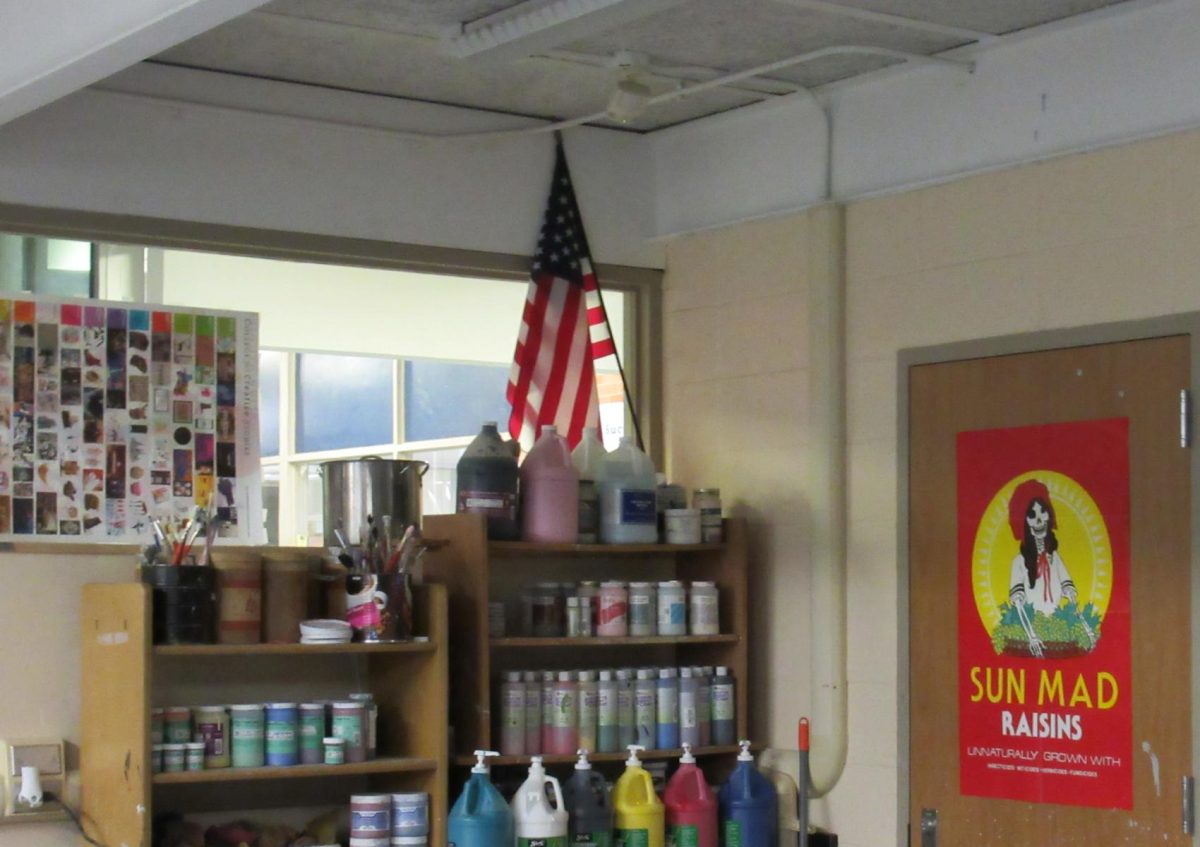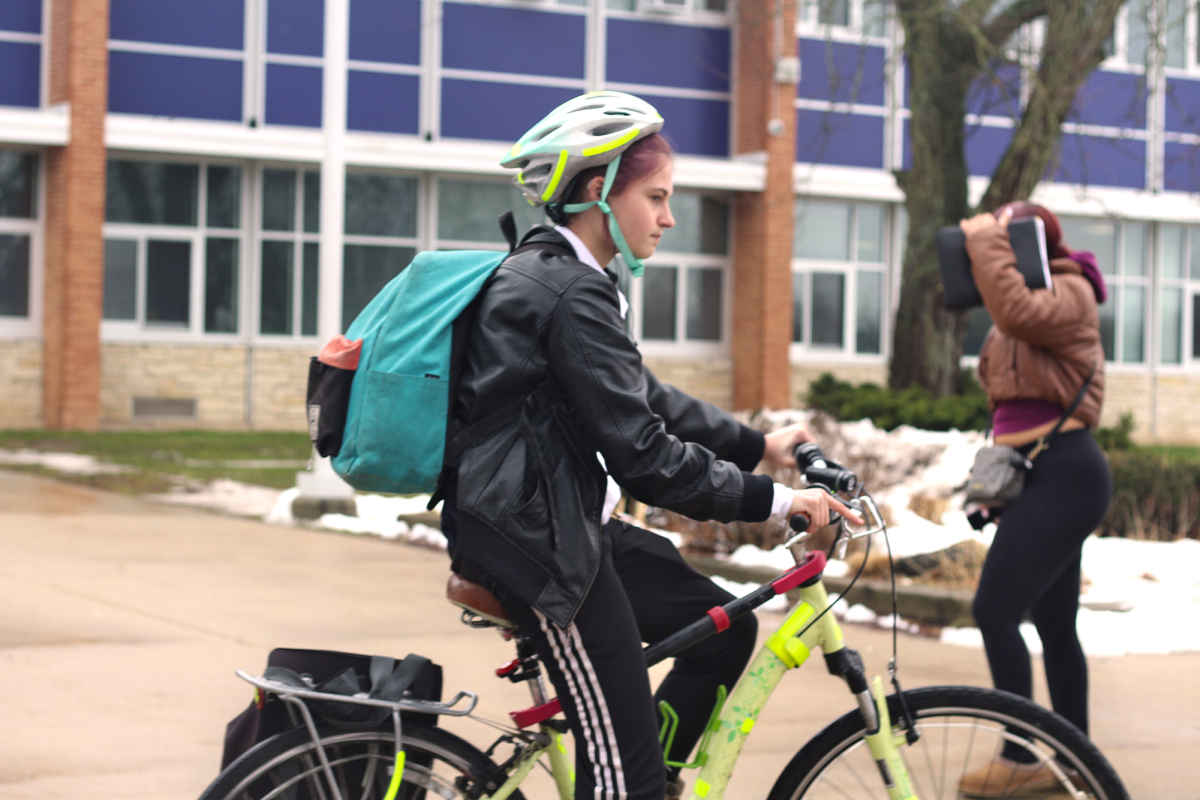
Flint’s lead pipes paved the shakey road towards a desperately needed boost in environmental concerns in Michigan. Further down the lead pipe road are perfluoroalkyl and polyfluoroalkyl substances (PFAs), seeping into the water of 31 counties in Michigan, including our very own Kalamazoo County.
“We are home to 21% of the world’s fresh water and yet too many families in Flint and across our state don’t have access to clean drinking water,” said Governor Gretchen Whitmer during her State of the State address.
Whitmer’s original executive order for environmental protections and reshuffling of the Department of Environmental Quality (DEQ) was shot down by the Republican controlled senate on February 14. It was voted down because of Whitmer’s attempt to eliminate the panels that had been created last year to oversee environmental rule-making. The panels contain many gas and oil lobbyists, making them the foxes guarding the henhouse.
The problem is that people who benefit from the oil industry and the farming industry, at the cost of the environment, are in positions of power within the federal government. For example, the head of the Environmental Protection Agency, Andrew Wheeler is a former coal lobbyist whom President Trump nominated to head the Environmental Protection Agency.
Michigan, the home to 11 thousand inland lakes, numerous rivers and the Great Lakes boasts 71 water systems throughout the state with higher levels of lead contamination than the city of Flint which recently received national attention for their contamination crisis. Recently PFAS or “forever chemicals” have been found in the tap water of over 30 different counties in Michigan, including Kalamazoo. PFAS are a family of chemicals that were heavily used the 1950’s in everything from carpeting to firefighting foam, unfortunately they don’t degrade in the body or in our environment, which means they can still cause harm today.
According to the United States Environmental Protection Agency, the negative health effects range from low infant birth rates to thyroid hormone disruption and cancer. That equates to over 1.5 million people drinking contaminated water.
Gretchen Whitmer’s plan consists of cleaning up drinking water, growing the blue economy (a term used to explore the idea of both exploiting the marine environment while also sustaining it), improving outdoor quality of life and water conservation. She proposed a $120 million dollar general fund aimed towards cleaning up Michigan’s drinking water, a hefty addition to her $60.2 billion budget plan for 2020. Whitmer has identified clean drinking water as a “fundamental human right.”
“The new Department of Great Lakes and Freshwater – in conjunction with a new State Infrastructure Council and the Department of Environmental Quality – will put people to work cleaning up drinking water contamination and repairing and replacing our pipes, drains, sewers and water infrastructure so that every Michigander has access to clean, safe water,” said Whitmer in her plan, Get It Done: Clean Water for Michigan.
One of the big points in Whitmer’s plan is controlling the amount of water withdrawn from Michigan’s water sources. According to the Department of Environmental Quality, the number one user is United States Steel, who uses around 146.6 million gallons of water a day, the very same U.S. Steel that paid nearly $900 thousand to settle a lawsuit after a chromium spill into Lake Michigan in 2017 from their plant near Chicago, Indiana. Unfortunately, that wasn’t the only time that that US Steel Plant has violated limits.
“A review of state records by law students at the clinic revealed that the Midwest Plant violated chromium limits at least four times since 2013,” said the Chicago Tribune. Whitmer’s plan is ambitious, but I do believe we need to focus on a lot more than just our waterways. Carbon emissions and fossil fuel usage could, and should, be exchanged for clean energy options. An example of this is the transparent solar technology created by a Michigan State University professor in 2014, which can be applied to anything with a clear surface, like a phone screen or over windows, to collect solar power.
“It is called a transparent luminescent solar concentrator and can be used on buildings, cell phones and any other device that has a clear surface,” said Tom Oswald and Richard Lunt of MSU.
However, it’s not just the state government that needs to take action but the federal government, the energy industry and private citizens as well. There is so much that we can do as individuals and communities for our environment.
For PFAS there is admittedly little for us as citizens to do. However, we can remain informed about the issue and continue to spread the word and campaign for the changes we need to see in order to maintain a high water quality. There is a lot you can do about other sources of water pollution though.
As a community the first step is to remain informed. From there it is possible to take steps to protect the environment. Cars burn gas for fuel and leave trace amounts of oil and grease in our environments. Ride your bike or take a walk when you can instead of driving. Carpool with your coworkers or friends. Check your car for leaks and patch them, this can benefit your wallet as well as the environment as you will be preventing pollution from runoff. Not only will you reduce pollution, but you’ll also save money on gas.
“The U.S. is the #1 trash-producing country in the world at 1,609 pounds per person per year. This means that 5% of the world’s people generate 40% of the world’s waste,” said the University of Southern Indiana.
When you think about throwing out a single use water bottle, toss it in the recycling bin instead to prevent it from sitting in a landfill or being lost to the sea. Starting a compost bin to toss food waste (minus dairy products and meat) would also be a great idea, as it decomposes it creates a fertilizer that can be put to use in your garden and prevents the contamination of groundwater. The use of fertilizers and manures can cause water quality degradation due to their ability to boost nutrients in the water. That boost of nutrients (mainly nitrogen and phosphorous) can cause algae blooms. Refraining from using commercial pesticides can also help create a safer, higher quality water source. Pesticides can poison fish and other marine life and remain in the water and ground for years similar to PFAS.
As consumers it is our duty to take care of our environment but it may not feel like you can do a lot as an individual. We can do that by voting in candidates who support a strong environmental policy and advocate for environmental protections.
Either way, if we don’t act there won’t be a world for us to enjoy. The future our predecessors tried so hard to prepare us for won’t matter because the clock started ticking a long time ago on our environment and we’ve already waited too long.
Subscribe to the Newsletter

Lizzy Garcia, Guest Writer • April 19, 2024
In life, a handful of people are faced with making the decision of moving. Whether it be moving for job or education opportunities, a move like...

Finn Bankston, Staff Writer • April 18, 2024

Lucy Langerveld, Staff Writer • April 16, 2024
2023 was dubbed by mainstream media as the “Year of The Girl”: the "Barbie" movie dominated movie theaters and powerhouse pop artists like...
Mother Nature Counts Down: Michigan Needs to Fight Harder to Combat The Water Crisis
Alexis Weeden, Assistant Editor-in-Chief
April 18, 2019
Leave a Comment
More to Discover
About the Contributor

Alexis Weeden, Assistant Editor-in-Chief
My name is Alexis Weeden. I'm the assistant Editor-in-Chief for Knight Life and have been a member since the 2018-2019 school year and was a guest writer the year before. Outside of Knight Life I'm a member of the National Honor Society and Michigan's Department of Natural Resources' Youth Conservation Council. My interests are politics, environmental policy, and sports.













